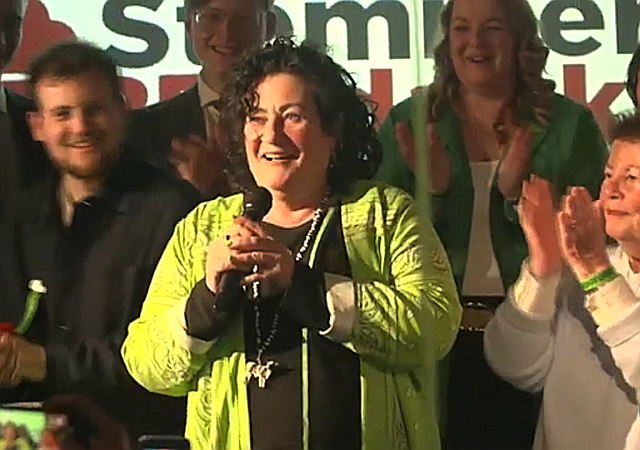Dutch Farmers’ Party Emerges as the Biggest Force in Regional Elections, Upsets Government’s Plan to Enforce Radical Climate Laws

As initial polling results show, Dutch farmers delivered a stunning blow to the country’s pro-EU establishment by emerging as the biggest political force in Wednesday’s regional elections.
The Boer-Burger Beweging (BBB), or Farmer-Citizen Movement, is set to become the largest party in the country’s senate, winning more seats than Prime Minister Mark Rutte’s ruling conservative VVD party.
According to exit polls, the farmers’ party will get more than 15 seats in a 75-seat senate, a body that has the power to block legislation passed by the lower house of parliament. “The BoerBurgerBeweging (Farmer-Citizen Movement), also known as the BBB, won almost 20 per cent of the vote, giving it 15 seats in the Senate, the upper house of parliament,” The Times of London reported.
Polls suggest that the leftwing ecological Groen-Links is expected to become the second largest party in the Senate, ahead of the country’s ruling VVD.
The German state TV Deutsche Welle reported:
A populist party founded only four years ago is set to emerge as the biggest party in Dutch provinicial elections for the upper house of parliament on Thursday, after riding a wave of protests by angry farmers.The Boer-Burger Beweging (BBB), or Farmer-Citizen Movement, is projected to win 16 or 17 seats in the 75-seat upper house of the Dutch national parliament.The party gained popularity as Dutch farmers’ protests ramped up in recent years, also gaining some global support, including from former US President Donald Trump and other right-wing or populist figures.The four parties in the center-right ruling coalition were dealt significant losses. Combined, they are projected to have under a third of the Senate seats.”This is not the victory we had hoped for,” Rutte, who has served as prime minister since 2010, said after the initial forecasts.The co-ruling Christian Democratic party is seen as one of the biggest losers in this election, losing almost half of its seats. The party has traditionally represented many farmers and conservative rural voters. The Labor party (PvdA) and the Greens (GroenLinks) are likely to win 15 seats combined, according to the preliminary results.The results force Rutte’s coalition to choose to either work with a left-leaning leaning bloc with environmental ambitions, or with the BBB. The latter is aiming to soften policies regarding cutting nitrate pollution.
Besides the party’s opposition to sweeping climate regulations, the BBB espouses Christian conservative values and wants to end mass migration from Muslim-majority North Africa and the Middle East. “The BBB opposes government plans to cut harmful emissions by reducing livestock numbers and buying out farms. However, its remit has broadened to embrace traditional, conservative Dutch social and moral values. These include opposing immigration and calling for a ban on Muslim women wearing the burka,” the Times of London noted.
The success of the farmers’ party threatens to derail the Dutch government’s plan to enforce EU-backed climate emission laws. “The meteoric rise of BBB is a major blow for Rutte’s governing coalition, casting doubt over its aim to drastically cut nitrogen pollution on farms, the single issue upon which BBB was founded in 2019,” the Belgian news website Euractiv reported Thursday.
The stunning electoral success of the BBB shows how a grassroots political party, created just four years ago, can win against a powerful pro-EU political and media establishment. The party galvanized popular support against the government’s plan to force farmers to reduce their greenhouse gas emissions or put them out of business.
The farmers’ fight is far from over in the Netherlands. Prime Minister Rutte’s ruling alliance could try to ram through climate legislation by aligning itself with other pro-EU globalist parties, Dutch news reports suggest.
CLICK HERE FOR FULL VERSION OF THIS STORY